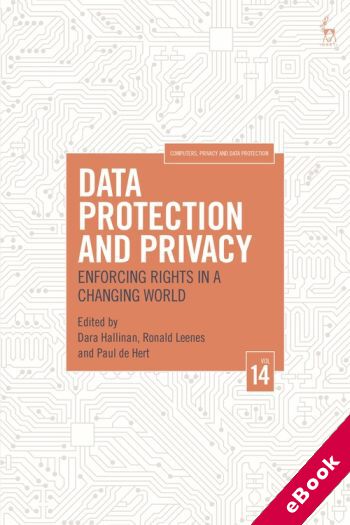
The device(s) you use to access the eBook content must be authorized with an Adobe ID before you download the product otherwise it will fail to register correctly.
For further information see https://www.wildy.com/ebook-formats
Once the order is confirmed an automated e-mail will be sent to you to allow you to download the eBook.
All eBooks are supplied firm sale and cannot be returned. If you believe there is a fault with your eBook then contact us on ebooks@wildy.com and we will help in resolving the issue. This does not affect your statutory rights.
This book brings together papers that offer conceptual analyses, highlight issues, propose solutions, and discuss practices regarding privacy, data protection and enforcing rights in a changing world. It is one of the results of the 14th annual International Conference on Computers, Privacy and Data Protection (CPDP), which took place online in January 2021.
The pandemic has produced deep and ongoing changes in how, when, why, and the media through which, we interact. Many of these changes correspond to new approaches in the collection and use of our data - new in terms of scale, form, and purpose. This raises difficult questions as to which rights we have, and should have, in relation to such novel forms of data processing, the degree to which these rights should be balanced against other poignant social interests, and how these rights should be enforced in light of the fluidity and uncertainty of circumstances.
The book covers a range of topics, such as: digital sovereignty; art and algorithmic accountability; multistakeholderism in the Brazilian General Data Protection law; expectations of privacy and the European Court of Human Rights; the function of explanations; DPIAs and smart cities; and of course, EU data protection law and the pandemic – including chapters on scientific research and on the EU Digital COVID Certificate framework.
This interdisciplinary book has been written at a time when the scale and impact of data processing on society – on individuals as well as on social systems – is becoming ever starker. It discusses open issues as well as daring and prospective approaches and is an insightful resource for readers with an interest in computers, privacy and data protection.